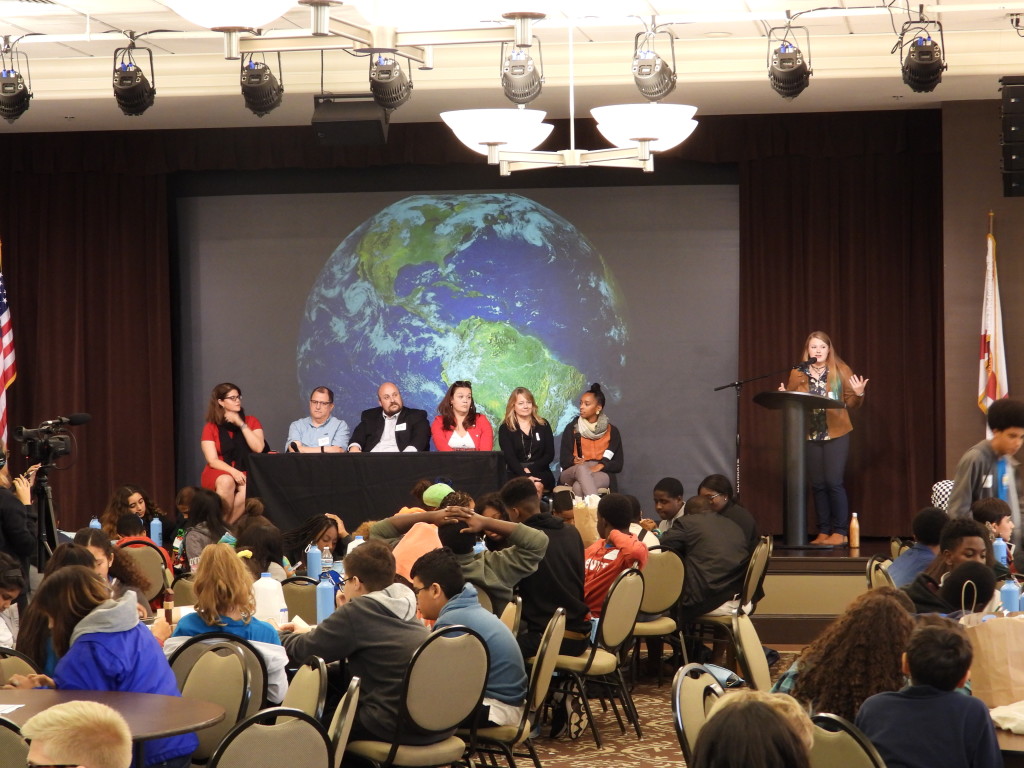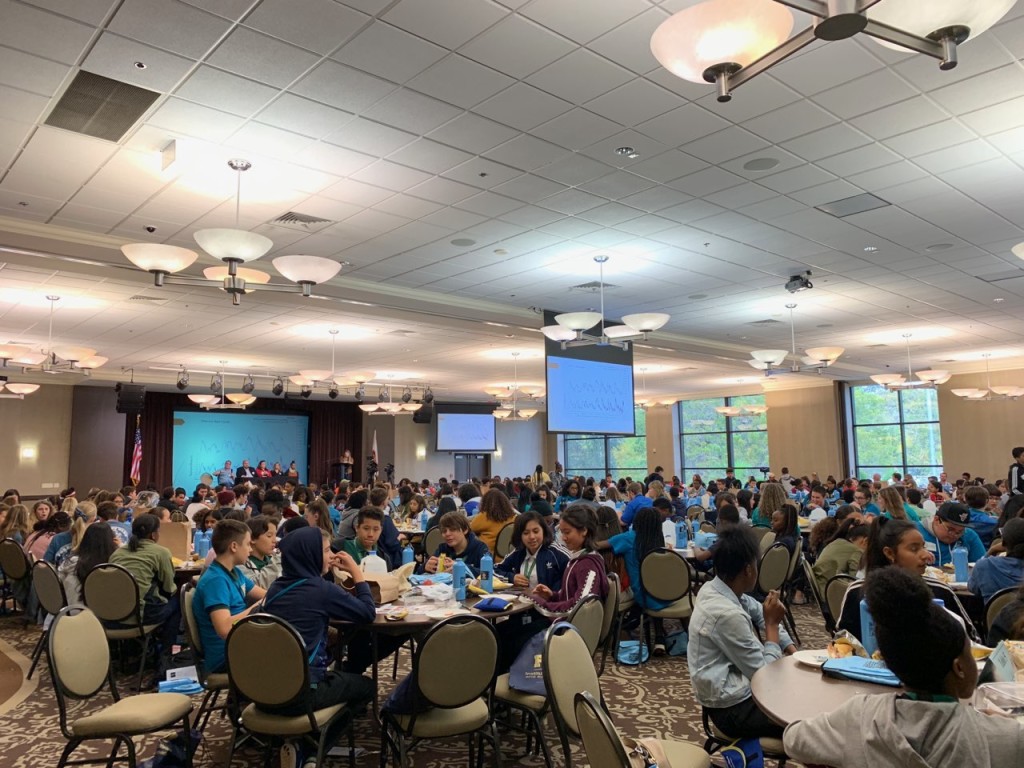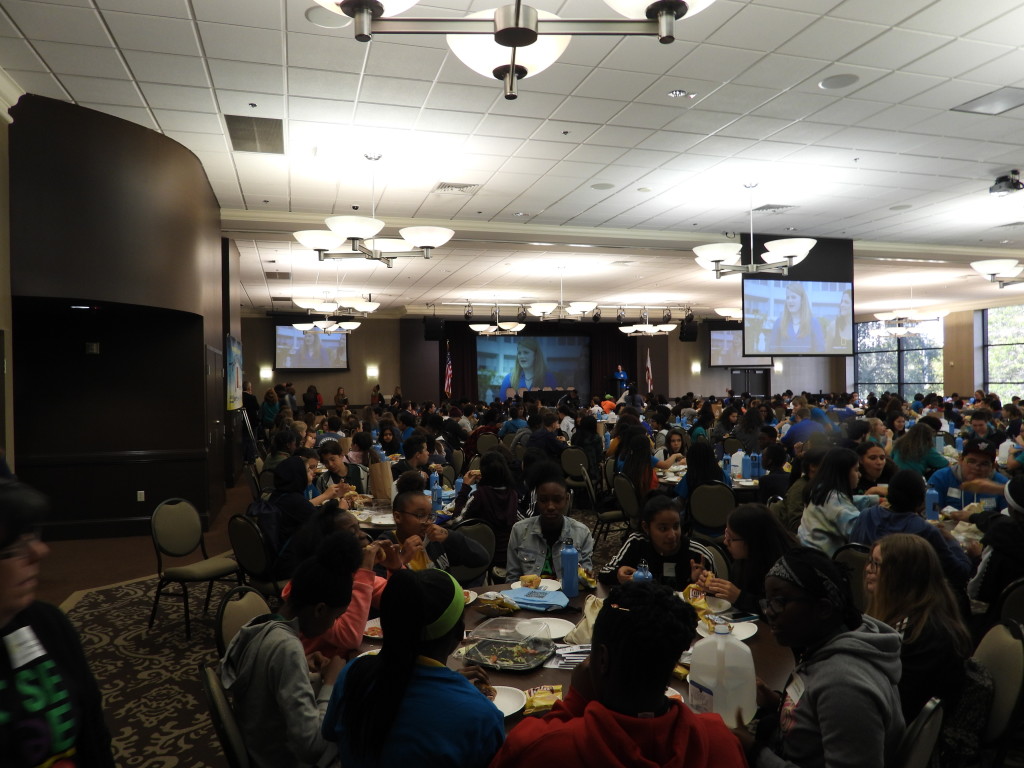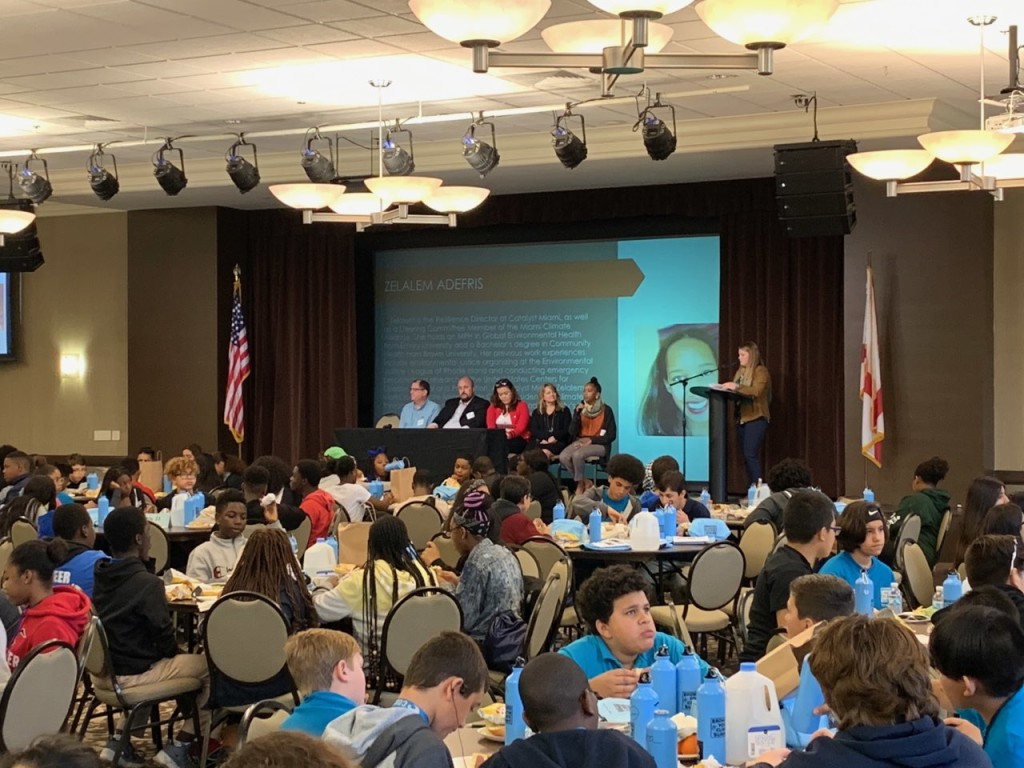Insurers Increasingly Focus On Climate Change Risks
I learned about my now good friend, the esteemed climate scientist Dr. Ben Kirtman here at the University of Miami, by reading his work within the IPCC Report when I was 13. In the years since he’s been someone that I’ve greatly admired and look up to but he’s also just about the nicest person you can imagine.
 |
 |
So nice, in fact, that he was kind enough to meet with me all of those years ago as I was just starting The Sink or Swim Project and boy was my time with him that day impactful. I don’t know if he knows this or not but Ben was the first person I ever interviewed about climate change (talk about starting in the deep end of the pool with one of the world’s top scientific minds!). And, true to form, upon hearing that I’d never been on campus at the Rosenstiel School of Marine & Atmospheric Sciences, the place where I will soon graduate, he insisted he give me a tour of the place. For a little girl who was in love with marine science and already dreaming of attending the very school he worked at it was pretty tall cotton as they say, and all these years later I am as appreciative today to him as I was that first afternoon we met.
Now I will also share with you that during our time together that day we covered a lot of important topics. Ben’s insights certainly confirmed my interest in working on our climate crisis much less the plight places like South Florida face as rising seas threaten their very existence. When, for example, we talked about the threat that rising seas present to animals Ben responded by saying “Although I am not a biologist I am pretty sure that the polar bears are in trouble”. His answer sparked an idea that I then turned into a comic book, Where Will All The Polar Bears Go?, that I wrote, illustrated, and have shared with tens of thousands of children during my public lectures in the years since.
Ben and I also talked about the challenges those who are so deeply concerned about our warming climate often face by others who are either unaware of the issue or somehow dismiss it. In explaining what could be done about folks who overlook or deny the issue and how we go about changing that before places people love, say the Everglades or Florida Keys, are lost forever, Ben said something I’ve never forgotten. When I asked him what he felt it would take to be or become the tipping point that would lead to widespread and aggressive action he explained that he felt that insurance companies and lenders would one day force solutions or would simply no longer offer some consumers coverage on their homes and businesses or, for that matter, a mortgage loan.
Of course, that made total sense. Insurers typically write a policy that’s six or 12 months in duration but when the time comes, and without serious action on our part that time will certainly come, they will stop writing coverage on a risk that’s sure to present them a claim. Mortgage lenders likely have an even greater risk since most home loans last 15 to 30 years. The lender today that is not paying close attention to the risk from flooding in a place like South Florida is the lender that will hold a mortgage on a home or business that’s under water in the decades to come.
And so with Ben’s insight all of those years ago in mind the article that follows caught my attention. The following is from an industry trade periodical called the Insurance Journal and as you will see it outlines a recent publication, the Climate Change Risk Assessment Report by the Geneva Association Task Force. The report considers a variety of risks related to climate change including the need to formally factor those risks into their predictive modeling, underwriting and strategic business decisions.
Ben was, of course, right. The day will soon come when insurers (and lenders too, you can be certain) take our climate change crisis into consideration when it comes to offering insurance or the price they charge.
In fact, based on the group of insurers on the task force, a who’s who of giant global insurers, I’d say the day, just as Ben so correctly predicted would happen, has already arrived. Now the question is what will our society do to not only mitigate the problem but actually address it’s foundational cause,fossil fuel production and use?
Insurance climate change task force warns of short, long-term risks: report
By Rebecca Gainsburg, Advisen
The insurance industry has taken promising first steps to understand climate change risk through decades of natural catastrophe modeling, analysis and pricing, but uncertainty surrounding future changes to public policy, litigation, technology and human behavior calls for a more holistic approach.
Insurance experts from 17 of the world’s largest property/casualty and life insurers joined forces to launch the Geneva Association Task Force and proactively publish a climate change risk assessment report in February.
“Insurers are obvious, strong leaders on global climate action, given their core functions – managing risk and investing – and our industry-led initiative demonstrates that they are proactively rising to the occasion,” said Jad Ariss, managing director for the Geneva Association.
By factoring climate change risk into underwriting decisions and choosing investment strategies that support climate change mitigation, insurers and reinsurers already contribute to the low-carbon economy transition. However, many difficult decisions still lie ahead regarding physical and transition risk in both the short- and long-term.
Physical risks from wildfires, droughts, and other extreme weather events will likely be similar in the next 10 years to what they are today. In the longer term (2030 to 2050), the Geneva Association said it anticipates an increase in the frequency and severity of extreme weather events and more significant consequences from rising sea levels, including prolonged heat waves and droughts, increased flooding of coastal areas, the spread of disease, and other geopolitical consequences.
Transition risks include societal and public policy efforts to mitigate climate change. They may result in increased climate change litigation, changes to the transportation and energy sectors, and an increasingly volatile valuation of assets in carbon-intensive sectors in the short-term. Long-term transition risks will largely depend on how much action is taken in the short-term, and the interconnection between transition and physical risks shouldn’t be ignored.
“If society is able to accelerate the transition by taking actions to reduce carbon emissions and thereby global warming, it may reduce the extent to which acute and chronic physical risks materialize. Conversely, an absence of action by society is likely to lead to more severe global warming and physical risks,” the Geneva Association said in its report.
Developing the proper methodologies and tools to properly understand, mitigate, and underwrite climate change risk takes time and reaching a consensus is often difficult, but collaboration between insurers, scientific communities and other experts could speed the process.
Currently, the goal is to boost “awareness of the risk, the importance of investing in developing assessment capabilities and experimenting with different approaches and engaging in dialogue to promote cross-learning,” according to the report.
“This initiative is taking the insurance industry’s climate action and collaboration to the next level. Building on lessons learned from previous pilots and initiatives, our task force is focused on advancing climate risk assessment and scenario analysis anchored in companies’ decision-making,” said Maryam Golnaraghi, the association’s director of climate change and emerging environmental topics.
Members of the task force include Achmea, Aegon, AIG, Allianz, Aviva, AXA, Chubb, Daichi Life, Hannover Re, Intact Financial, Manulife, MetLife, Munich Re, Prudential Financial, SCOR, Swiss Re, and Tokio Marine.




